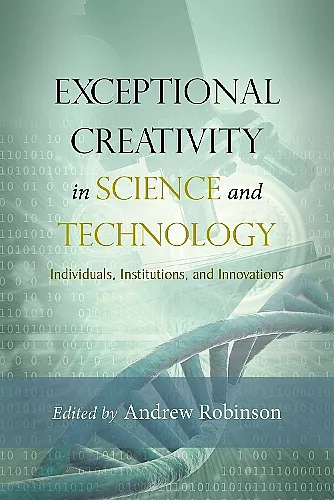Exceptional Creativity in Science and Technology
Individuals, Institutions, and Innovations
Format:Paperback
Publisher:Templeton Foundation Press,U.S.
Published:18th Mar '13
Should be back in stock very soon

This collection explores the intricate relationship between creativity and innovation in science and technology, featuring insights from prominent contributors.
In the journey of scientific advancement, the principles that govern extraordinary creativity and innovation remain largely unexplored. Thomas Kuhn, in his seminal work, highlighted that the concluding phase of a scientific breakthrough—such as Einstein's theory of relativity—was often beyond comprehension. This notion continues to resonate even decades later, emphasizing the complexities surrounding the creative process in science and technology.
However, significant strides have been made in deciphering various aspects of exceptional creativity and innovation. The book Exceptional Creativity in Science and Technology, edited by Andrew Robinson, compiles insights from a range of contributors who delve into these advancements. Originating from a symposium hosted at the Institute for Advanced Study (IAS) in Princeton, the collection features contributions from notable figures including the late Baruch S. Blumberg and Freeman J. Dyson. Their expertise, along with that of other distinguished scientists, engineers, economists, and sociologists, sheds light on the intricate relationship between individual creativity and institutional innovation.
The breadth of disciplines represented and the high-profile contributors—including two Nobel laureates—offer a rich tapestry of perspectives on the pivotal question of how breakthroughs occur. This collection is not only relevant to those in scientific and technological fields but also to anyone engaged in the creative process, making Exceptional Creativity in Science and Technology a valuable resource for a diverse audience.
"Following a series of outstanding books on various aspects of the history of science, Andrew Robinson has now edited a fascinating work which explores the origins of some of the greatest scientific institutions in the world and their innovations which have changed all our lives and had a remarkable effect in boosting the economies of the countries in which they were developed. While this fascinating story of the complex evolution of great science and its institutions will be of particular interest to the scientific community, given their great importance to all of us for the future it should attract a much broader audience in particular representing education, commerce, and politics. I wish it all the success that it deserves." —Sir David Weatherall, FRS, Regius Professor of Medicine Emeritus, Weatherall Institute of Molecular Medicine, University of Oxford
ISBN: 9781599474267
Dimensions: 229mm x 152mm x 20mm
Weight: 367g
272 pages
First Edition, 1